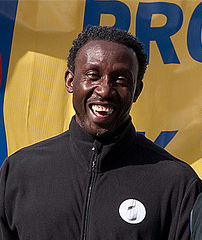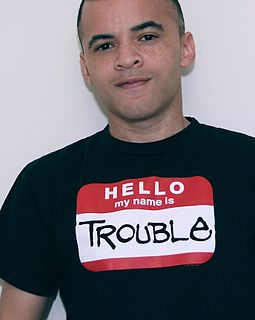A Quote by Clive Lewis
As in many British organisations, subtle institutionalised discrimination may well prevail. But in all my time in the army I've never experienced overt racism.
Related Quotes
Racism comes in many different forms. Sometimes it's subtle, and sometimes it's overt. Sometimes it's violent, and sometimes it's harmless, but it's definitely here. It's something that I think we're all guilty of, and we just have to make sure that we deal with our own personal racism in the right way.
The way racism works in Canada, it's very subtle. You may feel you're a victim of racism or have experienced racism, but you can't necessarily prove it - unless you get a [white] friend to go check out that rental, go check out that job, whatever. Unless you're willing to really dig to prove you're a victim of racism, it might be difficult to do that. And so what you're dealing with then is feeling, it's emotion.
Critical Race Theory offers of discrimination frameworks as ways of understanding and eradicating racism. The focus on "discrimination" as the way to understand racism in the US has meant that racism is considered a question of discriminatory intentions - whether or not somebody intentionally left someone out or did something harmful because of their biased feelings about a person's race. This focus on individual racists with bad ideas hides the reality that racism exists wherever conditions of racialized maldistribution exist.
Something happens in the middle when women are in their 30s, and we can start with an array of things that happen, whether it is - you hope this doesn't exist any longer - but overt discrimination; whether it's subtle gender discrimination, which absolutely does exist among men and women; whether it's the fact that it gets hard to juggle at that point children, housework, etc. But people still have to go home and cook the dinner and clean the dishes and get the beds made and so on. And so, for a whole bunch of reasons, women tend to fall out in their 30s still today.
































